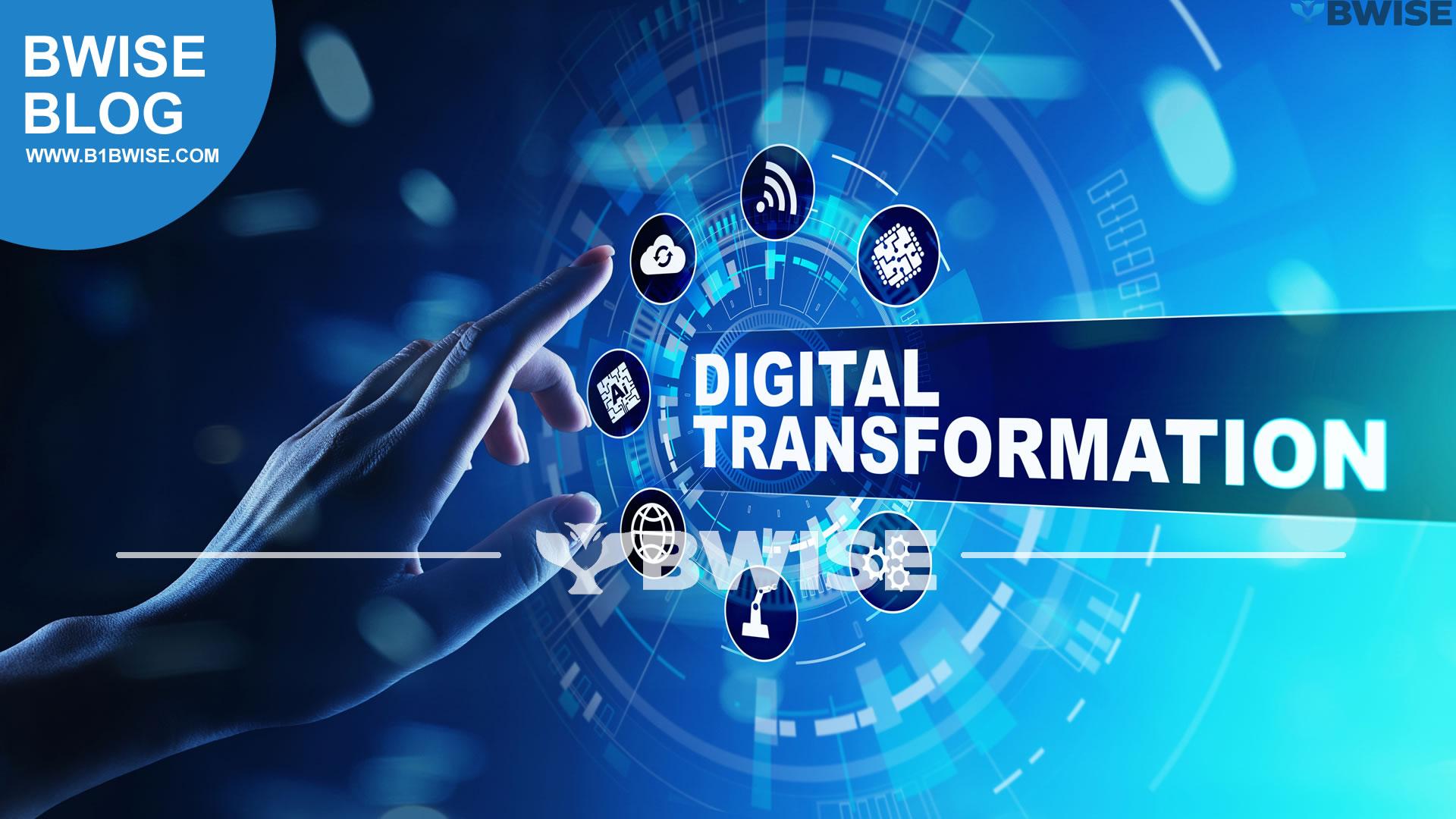The manufacturing industry, the backbone of countless economies, is undergoing a seismic shift. We’re witnessing a new industrial revolution driven by the transformative power of digital technologies. This “Digital Transformation in Manufacturing” is no longer a futuristic concept; it’s the present reality for companies seeking to stay competitive in a rapidly evolving landscape.
But what exactly is digital transformation in manufacturing? In essence, it’s the strategic integration of cutting-edge technologies like artificial intelligence (AI), the Internet of Things (IoT), big data analytics, and cloud computing into every aspect of the manufacturing process. This encompasses everything from design and development to production, supply chain management, and customer service.

Why Embrace Digital Transformation?
The benefits of digital transformation in manufacturing are compelling. Here are some key reasons why manufacturers are increasingly embracing this revolution:
- Enhanced Efficiency and Productivity: Digital technologies like automation, robotics, and real-time data analysis can streamline production lines, minimize waste, and optimize resource utilization. This leads to significant gains in efficiency and productivity, allowing manufacturers to produce more with less.
- Improved Quality Control: Digital tools like machine learning algorithms and sensor-based monitoring systems can detect potential defects early in production, leading to higher quality products and reduced rework costs.
- Data-Driven Decision Making: Digital transformation empowers manufacturers with a wealth of data about their operations. By leveraging big data analytics, companies can gain valuable insights into everything from machine performance to customer preferences. This data-driven approach allows for informed decision-making, improving resource allocation, optimized product designs, and better customer service.
- Increased Agility and Flexibility: Digital technologies enable manufacturers to adapt to changing market demands with greater agility. They can quickly adjust production lines, personalize products, and respond to customer needs in real-time. This agility is crucial in today’s dynamic market environment.
- Enhanced Collaboration and Visibility: Digital platforms facilitate seamless communication and collaboration between teams across the entire value chain, from design engineers to production personnel. This improved visibility allows for proactive problem-solving and faster issue resolution.
Key Technologies Driving Digital Transformation
Several key technologies are playing a pivotal role in digital transformation within the manufacturing sector:
- The Internet of Things (IoT): By connecting machines, sensors, and other devices to the Internet, manufacturers can collect real-time data about their operations. This data can be used to monitor machine health, optimize production processes, and predict potential maintenance needs.
- Artificial Intelligence (AI): AI algorithms are transforming various aspects of manufacturing. They can be used for predictive maintenance, optimizing production schedules, and even automating quality control processes.
- Big Data Analytics: The vast amount of data generated by IoT devices and other sources presents both an opportunity and a challenge. Big data analytics tools help manufacturers extract meaningful insights from this data, enabling them to make data-driven decisions.
- Cloud Computing: Cloud computing gives manufacturers access to on-demand computing resources, enabling them to scale their operations up or down as needed. This flexibility is crucial in today’s dynamic market environment.
- Additive Manufacturing (3D Printing): Additive manufacturing, also known as 3D Printing, is revolutionizing prototyping and production processes. It allows for creating complex and customized parts on demand, increasing design flexibility and reducing lead times.
Implementing Digital Transformation: A Step-by-Step Guide
Digital transformation in manufacturing is not a one-size-fits-all approach. The specific steps will vary depending on the size and maturity of the organization. However, there’s a general roadmap to guide your journey:
- Assess your current state: Begin by evaluating your existing processes, identifying areas for improvement, and defining your goals for digital transformation.
- Develop a digital transformation strategy: Outline your roadmap for achieving your goals. This should include the technologies you plan to implement, the resources you will need, and a clear timeline for implementation.
- Invest in the right technology: Choose the digital technologies that best address your needs and challenges. Ensure compatibility with your existing infrastructure and consider the scalability of the solution.
- Embrace a data-driven culture: Build a culture that values data and its role in decision-making. Invest in training your workforce on how to analyze and interpret data effectively.
- Focus on change management: Implementing technology is only half the battle. Ensure user buy-in and successful adoption through effective change management strategies.

The Future of Manufacturing is Digital
Digital transformation in manufacturing is not just a trend; it’s the industry’s future. Manufacturers can unlock significant competitive advantages by embracing these technologies and fostering a culture of innovation. They can achieve greater efficiency, improve product quality, and meet evolving customer demands head-on. The path to digital transformation might require investment and planning, but the potential rewards are substantial. Companies that can successfully navigate this transformation will be well-positioned to thrive in the years to come.
Real-World Examples of Digital Transformation in Action
Here are a few inspiring examples of how leading manufacturers are leveraging digital transformation to achieve remarkable results:
- Siemens: The industrial giant uses AI and machine learning to optimize factory production processes, leading to significant efficiency gains and reduced downtime.
- Boeing: The aerospace leader uses digital twin technology to create virtual aircraft models, allowing for faster and more efficient design and production processes.
- Under Armour: The sportswear company utilizes 3D Printing to create customized products for its customers, offering a unique and personalized experience.
These are just a few examples, and the possibilities are truly endless. As digital technologies evolve, we expect even more innovative applications to emerge within the manufacturing landscape.
Getting Started with Your Digital Transformation Journey
If you’re ready to embark on your digital transformation journey, partnering with a knowledgeable, experienced technology solutions provider is crucial. They can help you assess your current state, develop a customized strategy, and select the right technologies to meet your needs.
BWISE Solutions is a leading provider of digital transformation solutions for manufacturers. With their expertise in ERP systems, cloud computing, and data analytics, they can help you unlock the full potential of digital technologies and achieve operational excellence. Visit their website at BWISE Solutions to learn more about their services and how they can help you navigate your digital transformation journey. You can also request a free demo to see firsthand how their solutions can empower your manufacturing operations.
By embracing digital transformation, manufacturers can unlock a new era of efficiency, innovation, and growth. The time to act is now. Take the first step towards a more digital future for your manufacturing operations and secure your competitive edge in the years to come.
